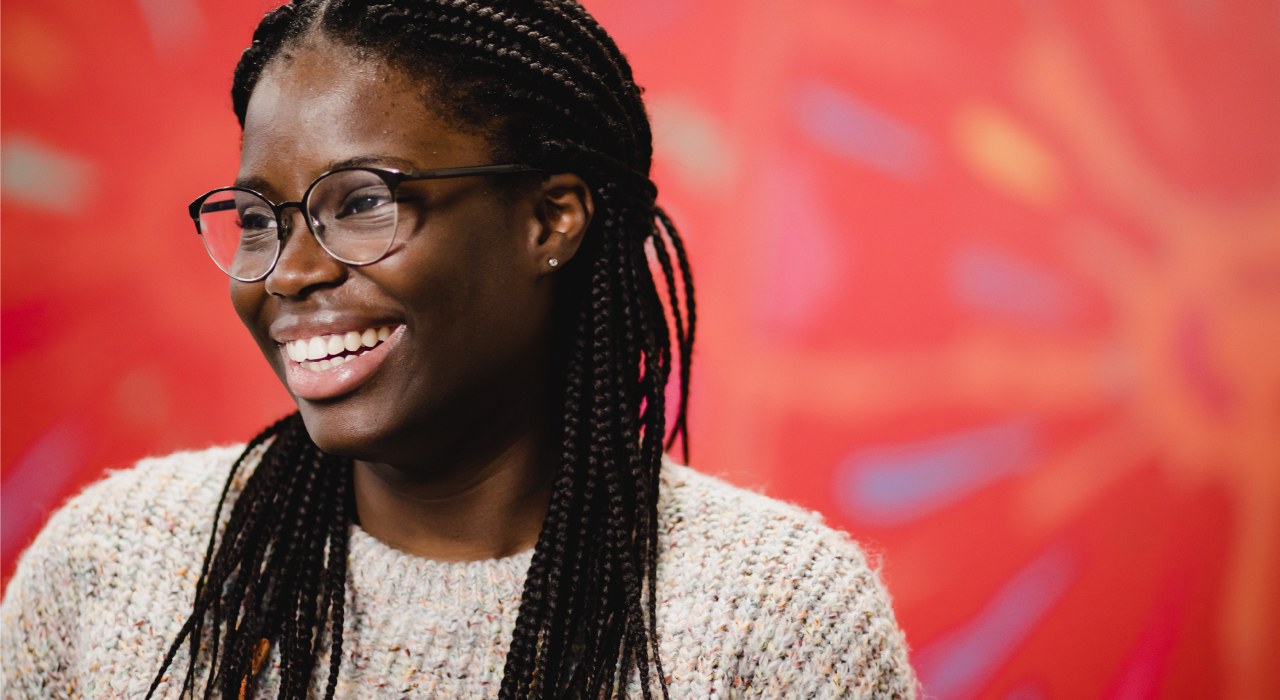Published April 13, 2021
Struggling with Impostor Syndrome at NYU

Last semester I worked two jobs, had an internship, and took five classes. I still felt like I wasnʼt doing enough and that I was falling behind my peers. These feelings (when paired with questions like “Do I even belong at NYU?,” “Am I meant to be in such a high-powered environment?,”and “Can I handle this?”) culminate in a phenomenon called impostor syndrome.
Unfortunately, it is something everyone suffers at some stage of life—especially when entering new, unfamiliar circumstances (like your first year in college!). But you cannot let impostor syndrome—or any insecurities it might produce—be your guide. I have a similar workload this semester and sometimes still struggle with those feelings. But I have found ways to ground myself that I hope will be helpful to you, too!
You Are Not Alone in This
Everyone around you—whether they show it or not—has fears, doubts, and insecurities. Everyone (especially first years) is wondering whether they belong. The irony of impostor syndrome is that everyone—I really mean everyone—feels like the impostor! Incredibly well-adjusted, successful people (like you!) experience this at some point or another in their academic, personal, or professional lives.
My brilliant constitutional law professor, who can reference archaic legal codes and recite precedents from memory, shared his own feelings on impostor syndrome with me a couple weeks ago. He described it as “becoming psychologically debilitated by your quest for authenticity.” But it doesnʼt have to be this way!
The Past Year Has Been Hard—but You Have the Skills to Thrive at NYU!
Impostor syndrome ultimately boils down to whether or not you feel like you are equipped for whatever new situation you are about to enter. College is no different! Your senior year of high school is radically different than any other previous graduating classʼ throughout history. Be sure to take a moment to acknowledge that, understand it, and respond accordingly! You might not feel like you are ready for college—especially not somewhere with a rigorous academic curriculum—after the past year of remote learning.
You may feel like you learned nothing or remote learning did not challenge you enough. Are you ready for a school like NYU? Yes! You might feel like school has been overwhelmingly difficult lately. Itʼs harder to get through readings, to focus in class, to do the work you are used to doing (and enjoying!). I know I have felt this way a lot since last March. If this has been so hard for you, can you possibly be prepared for another stressful learning environment? Yes!
Consider the Skills You Picked Up While Learning Remotely and Their Value to the College Experience
While you might feel like you have learned nothing over the course of your remote learning career, consider the skills you have developed in a larger sense. You havenʼt been walking into class and seeing your teachers every day. Itʼs harder for them to gauge your overall well-being and for you to communicate any academic or personal difficulties you have been experiencing as a result.
This has driven you to reach out to your teachers when you are struggling—to advocate for yourself. You might not have become a self-advocate intentionally, but it is one of the most important skills you can have in college and adulthood at large.
Being able to ask for help when you are struggling is incredibly difficult to do—especially in professional or academic contexts where you want to succeed! Asking for help isnʼt a fault—it’s actually a skill that many people don’t develop until much later in life. The nature of remote learning has allowed you to develop this skill early—you aren’t behind anyone; you are ahead of the curve on this!
Help Is Available
Just because you have the skills to thrive here doesnʼt mean you have to do it alone! While impostor syndrome may cause you to feel like you don’t belong, there are so many people and resources available to you to show you that you do! You don’t have to struggle through this on your own. Reaching out to professors and employers to discuss what is causing you difficulty is important but so is finding support structures (social or otherwise) to be there for you in the long term.
Check out the Wellness Exchange, a resource in place to support students no matter what they are dealing with. Or consider the Office of Student Success, which works to ensure that every student has the tools to succeed here—including the tools to combat impostor syndrome! Isolating yourself in this might feel like the right way to move past it, but these resources are here to help you through it!
You might still be wondering if you belong at NYU. Impostor syndrome can be difficult to shake. Here’s the thing: you were admitted—and you were admitted for a reason! We feel that you belong here with us. If we didn’t, we wouldn’t want you to join us so badly! It’s easy to doubt yourself. It’s especially easy to do so if you weren’t admitted into your first-choice program. You might wonder if you weren’t good enough, if you don’t have what it takes to succeed there. That is not the case!
The right path for you just might not be what you envisioned it to be when you were applying to college. For example, what I thought I wanted when I was 17 years old is incomparably different to what I know I want now. You are good enough. You are more than good enough. And you canʼt lose sight of that. I have found this mantra helps me ground myself when imposter syndrome arises: “You are here and you are enough.” The logic is as follows:
You are here. Therefore you must belong here or else you would be somewhere else! Since you are here, you must be enough or else you would not be here!
Please remember that. Internalize that. You are here and you are enough. Eventually, as time passes and you have more experiences and you begin to fulfill your infinite potential, it will become easier to remember that. It will be something you hold onto without even realizing it. This reminds me of something Christopher Robin says in Winnie-the-Pooh: “You are braver than you believe, stronger than you seem, and smarter than you think.” You are here—you are wanted here, you are welcome here—and you are enough. Welcome home, future Violets!



